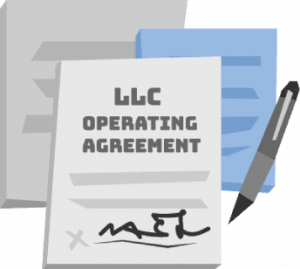How to Start an LLC in New Hampshire
Starting an LLC in New Hampshire gives you liability and asset protection, and it also means you can pick a management structure and tax election status that works best for your company. In New Hampshire, you’ll need to pay a $100 filing fee.
To launch your LLC, you’ll need to fill out paperwork called a Certificate of Formation and submit it to the New Hampshire Corporations Division. You can complete the paperwork on your own or hire someone like Northwest to complete it for you. Once the Certificate is submitted, you’ll need to take additional steps to secure your privacy and satisfy federal government requirements. Here’s what to do.

1. Name Your LLC
First off, you need a name for your LLC. The complete text of New Hampshire’s naming rules for LLCs can be found in NH Revised Stat. § 304-C:32, but in general, your LLC name must:
- Include limited liability company or an acceptable abbreviation such as LLC.
- Be unique among registered business names in New Hampshire. You can run a business name search via the Secretary of State’s website.
- Not contain language implying your business is something it’s not, such as a government agency or a charity.
- Not use the name of a political party unless you have written consent from a representative of that party.
Tip: If your preferred name is available in New Hampshire, that’s great. But it’s still possible that someone has trademarked the name federally, which could leave you open to getting sued. Running a trademark clearance search can help you avoid that situation.
Your domain name is your business’s online web address. It’s what customers use to find your business offerings online. An online presence you own is essential for any business.
Finding and securing the perfect domain name can feel overwhelming and popular names go fast. So, it’s smart to reserve your domain name early. Registering your domain name before you form your business ensures your desired web address is available when you need it.
At Northwest, we make the process simple. When you form your LLC with us, we’ll help you secure your domain name and provide a year of domain registration free.

2. Get a NH Registered Agent
A New Hampshire registered agent is the person or entity who you authorize to accept legal mail on behalf of your LLC. Legal mail includes notices that you’re being served with a lawsuit. Once a registered agent has been served, they must get the paperwork to you as quickly as possible. New Hampshire law requires every LLC to have a registered agent. Your registered agent must:
-
Have a physical address (not a P.O. Box or virtual office) in the state of New Hampshire, which will be listed on the public record.
-
Maintain regular business hours at this address.
-
Accept service of process on behalf of your business and forward it to you right away
Tip: If you meet the above requirements, you can serve as your own New Hampshire registered agent. But if you were hoping to live more privately with an LLC, it’s best to hire a professional like Northwest to act as your registered agent.

3. File LLC Certificate of Formation in NH
A Certificate of Formation is what you submit to the New Hampshire Corporations Division as outlined in NH Rev Stat § 304-C:28. Once you’ve submitted the paperwork, the Corporations Division will check it for any issues. If there are none, the state will approve your business, meaning your LLC is officially formed.
Tip: Everything you list on this form becomes part of the public record. Hiring a professional registered agent is one way to keep your personal information private.
Do you already have an LLC registered in another state or country? Then you may want to register a foreign LLC in New Hampshire.
Your Certificate of Formation must include the following info:
Must include the phrase limited liability company or an an acceptable abbreviation like LLC.
If included, this must be a physical street address. If this field is left blank, the registered office will be used as the principal office address.
A P.O. Box is acceptable here, or you can leave this field blank.
Feel free to leave this blank if you don’t want your phone number to be made public.
List an email address if you want the Corporations Division to email you annual report reminders instead of mailing them.
You’re required to be specific here about the type of business you’re starting. For example, nail salon or fitness trainer. Other states will accept general statements, but New Hampshire is not one of them.
You’ll put your registered agent information here.
Specify whether your LLC will be managed by members or managers. In a member-managed LLC, members (also known as owners) are in charge of running the LLC on a day-to-day basis.
In a manager-managed LLC, members appoint or hire a manager or managers and let them take care of running things. There are other types of LLC structures and formations to consider.
List your members’ or managers’ names and addresses here.
Your Certificate of Formation can be signed by a manager (if your LLC is manager-managed) or a member (if your LLC is member-managed). New Hampshire law also allows anyone authorized by the LLC to sign the Certificate of Formation, including a registered agent.
How Do You File a New Hampshire Certificate of Formation?
When we say file, we mean submitting your Certificate of Formation to the New Hampshire Corporations Division. Filing can be done in one of three ways: online, by mail, or in-person.
By mail:
Corporation Division
NH Dept. of State
107 N Main St, Rm 204
Concord, NH 03301-4989
In person:
State House Annex
28 School Street
Concord, NH 03301
Online:
NH QuickStart
Quick New Hampshire
LLC Formation


4. Adopt an Operating Agreement
An operating agreement is a guidebook for how your LLC will operate. It includes information on how the LLC will:
- Hold votes
- Handle disputes
- Distribute profits
It should cover both everyday occurrences and events that only happen once, like the dissolution of the company.
Tip: Drafting an operating agreement isn’t something you do every day, which can make it a struggle. So we had our attorneys draft an operating agreement exclusively for New Hampshire, and you can access it for free.
No, you don’t have to file a copy of your operating agreement with the state, as operating agreements are considered internal documents. That said, you should still draft a written operating agreement, so you can do things like open a business bank account. Without an operating agreement, your LLC will be subject to New Hampshire’s default LLC laws.

5. Get an EIN
Your LLC will probably need an EIN. EIN stands for Employer Identification Number, and it’s a nine-digit number that’s assigned by the IRS. An EIN makes it easier to pay your taxes, but it also helps when applying for loans or opening a business bank account. As a bonus, listing your EIN on a form is more secure than giving out your Social Security number.
You can obtain an EIN through the IRS’ website. If you’d rather not do that, you can hire us to get an EIN on your behalf.

6. Get a Business Bank Account
You should avoid blending your personal finances and business finances. Mixing the two could lead to a court deciding that, legally speaking, you and your LLC are the same. By opening a business bank account, you’ll be able to keep your business and personal finances separate.
When you head to the bank to open a bank account for LLCs, you’ll need to bring three things: your EIN, a copy of your operating agreement, and an LLC Resolution to Start a Bank Account.
7. File State Reports & Taxes
LLCs that are formed in New Hampshire are required to file an annual report every year. Filing your annual report ensures that the state has up-to-date contact information for your business, and that they know if your LLC has changed ownership. In New Hampshire, the filing fee for annual reports is $100.
NH Annual Reports are due for LLCs on April 1.
Tip: Worried you’ll forget? Let us file your New Hampshire Annual Report for you.
You will also need to pay New Hampshire LLC taxes. LLC taxes in New Hampshire are have some interesting bits you’ll need to consider like income thresholds. You’ll need to pay the LLC’s income on your personal income tax at the federal self-employment tax rate. There are other costs to form a New Hampshire LLC you’ll need to consider like permits or professional licensing.

